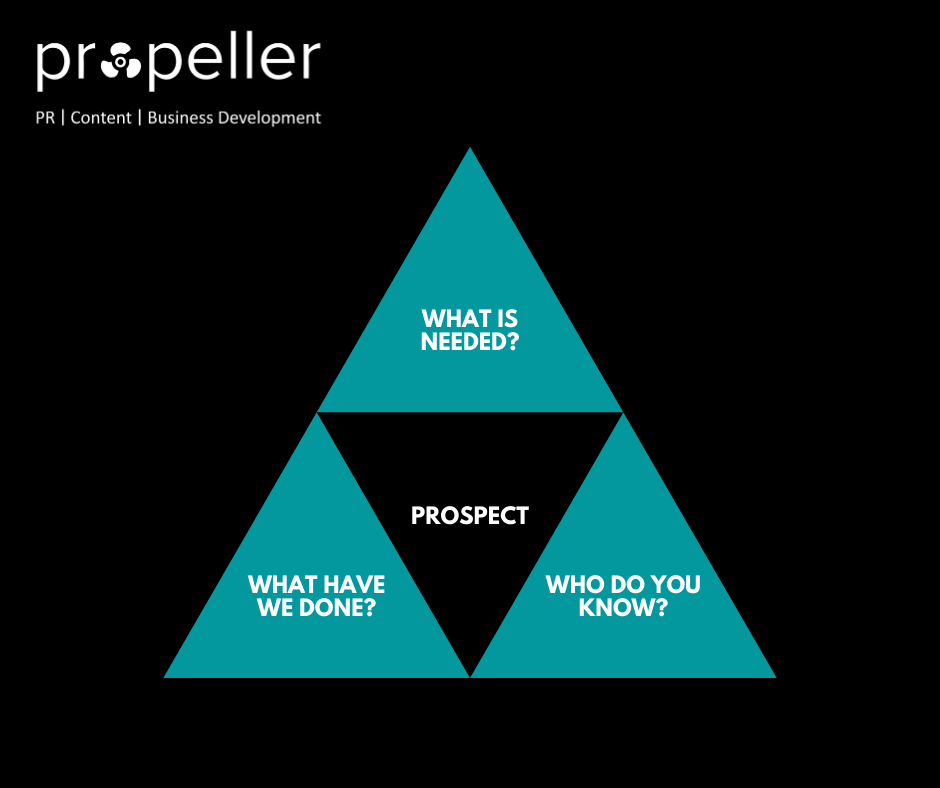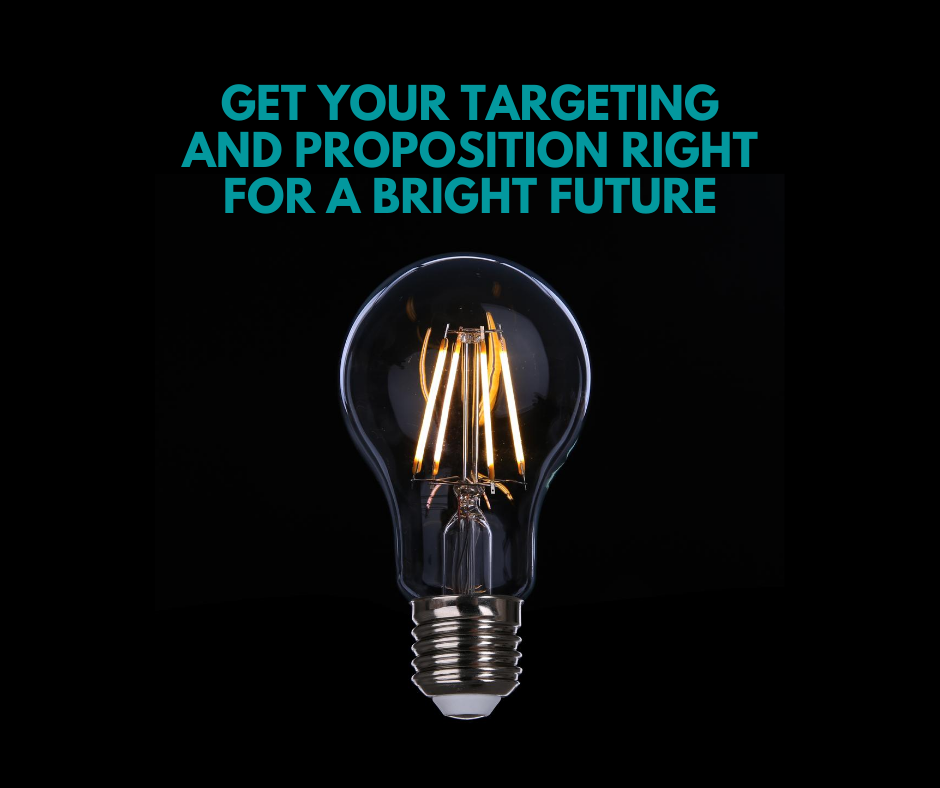With agencies reviewing their processes and operations amid the upheavals of the past few months, it makes sense to also take the opportunity to redefine the type of clients you want to work with and the type of work you want to be known for.
During a recent online session Propeller’s Group Director of Clients and Strategy Rose Bentley and Group Director of Business Growth, Jody Osman, shared their thoughts on how to identify the sectors and brands that are going to be right for your agency in the future.
Identifying your ‘ideal’ clients
Jody explained the importance of getting your targeting right from the outset, so you are concentrating your efforts on the right type of clients. Keep in mind that new business takes time to build relationships with prospective clients and you want to make sure you are investing this with the right focus.
Taking an account-based approach, you should identify the brands you really want to work with and that you see as a good fit for your business. Then identify the right people and decision makers with which you need to build a relationship, taking the time to find out about them so you can understand what is likely to be important to them and their business.
When you’re putting together a target list of brands it’s important to get a really clear sense of what the right ‘sweet spot’ client looks like and what’s the best match for your experience. Look at your most successful existing clients to help understand this – the size of the company (turnover and the number of employees), media spend, location and any other characteristics that can make a difference to the type of work your agency will be able to do with them and whether they will have an appropriate budget.
Agencies will often focus on a particular sector where they have client experience, which is good for establishing credibility but they shouldn’t group their approach too broadly. Take time to understand each individual sub-sector and the types of businesses to really ensure any approach is relevant.
Don’t have to limit yourself by sector. Jody shared success he’d had helping businesses crack new sectors and said. “We did this by finding other ways to make our experience relevant, for example: helping a client to connect with a particular audience, helping launch things, or working with other fast growth businesses.”
Whilst there’ll often be a reactive element to new business in following up on leads or enquiries, it’s always important to keep in mind the end-game and the what type of clients you ultimately want to work with.
A way to focus your client wishlist
“Focus is not a luxury, it really pays dividends.”
Rose suggested one way to evaluate the investment of resources in a pitch is via ‘the magic triangle’.

When looking at a prospect, it’s important that you have at least two out of three from the triangle to make it worth going for:
- Need
- Does this business have a burning platform?
- How does it fit within your agency proposition?
- Killer Creds
- What work have we done in this sector?
- What makes them killer creds for this client?
- What is the business problem it solved as well as the sector it’s in?
- Contact
- Who do you know within the business?
- Are they budget holders, influencers or information providers?
Developing your core proposition
Rose explained that agencies should respond to the market depending on what they specialise in. She suggested that it’s worthwhile taking time to explore what’s special about your agency, what is authentically in your agency’s DNA and what core skills can it offer? Defining your proposition with full agreement from all internal stakeholders is essential.
Rose stressed that running after every apparent opportunity can be self-defeating and added: “Chasing every opportunity that moves can be a dangerous pattern, which can waste a lot of time, effort and money.”
She emphasised the importance of making sure the agency has a focus on the bigger vision for a brand’s business when pitching for their work – why is the agency uniquely placed to help solve the prospect’s business problems?
Agencies also need to remember to encourage the prospect to talk as much as possible during the chemistry and pitch stage and to keep a clear focus to the conversation to really understand where they can add value.
Need some help? If you would like help defining your agency targeting or proposition, don’t hesitate to get in touch. We are happy to help with advice and have a series of workshops coming up to help you with this. Click here to find out more.
